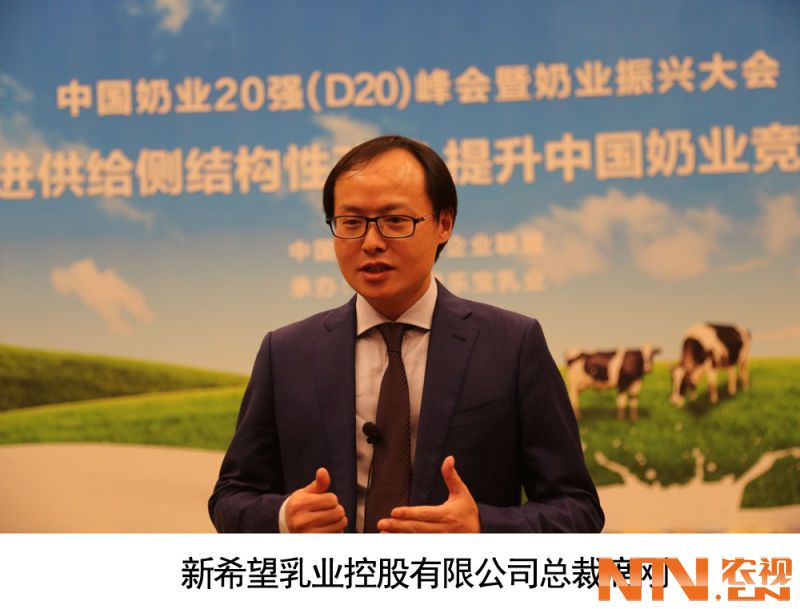The "Chicken War" between China and the United States continues: China levies another five-year countervailing duty on American broilers
The "chicken war" between China and the United States will continue for at least another five years.
On August 22, China's Ministry of Commerce announced that it would continue to impose countervailing duties on imported white-feathered broilers originating in the United States for five years. "if the countervailing measures are terminated, the damage to China's domestic industry may continue or recur."
According to the ruling, the countervailing tax rate levied by China on different US companies ranges from 4 per cent to 4.2 per cent and will be implemented from August 30.
This is the latest step in the "broiler dispute" between China and the United States that has lasted for nearly seven years.
As early as August 29, 2010, the Ministry of Commerce announced that countervailing and anti-dumping measures would be implemented on white-feathered broilers imported from the United States for a period of five years. The United States then filed a lawsuit with the WTO to consult the case under the WTO dispute settlement mechanism.
In September 2013, the WTO released a panel report on the dispute between China and the United States over white-feathered broiler chickens. China then re-investigated the case and adjusted countervailing and anti-dumping duties in July 2014.
However, the dispute between the two sides did not end there. In June last year, two months before the double countervailing period was about to expire, the Ministry of Commerce received an application for final review of countervailing anti-dumping measures submitted by the China Animal Husbandry Association on behalf of the domestic white feather broiler industry. it is considered that if the countervailing anti-dumping measures are stopped, the damage caused to the domestic industry may occur again, and request the Ministry of Commerce to rule to maintain the original measures.
In August and October 2015, the Ministry of Commerce filed the final review investigation of the countervailing and anti-dumping measures of white-feathered broilers respectively. The announcement of the continued collection of countervailing duties is the final ruling of the final review in August last year.
At the same time, the United States is not idle.
In May this year, the United States once again filed a complaint with the WTO, arguing that the move failed to comply with WTO rules and put American farmers in a weak position in the competition.
According to data released by the USDA, the United States exported 260 million pounds of chicken, turkey and eggs to China in 2014, compared with 729 million pounds in 2009 before China imposed "double transgressions" on relevant US manufacturers.
What is clear is that the "chicken war" between China and the United States will continue in the near future, because the results of the final review of China's anti-dumping period have not yet been announced. Once China continues to impose double anti-tax on American broilers, it is clear that the United States will come up with "countermeasures".
"White-feathered broiler" is only a microcosm of the current Sino-US trade friction.
China has violated WTO rules by imposing export duties on nine raw materials, including graphite and copper, and the United States will appeal to the WTO, the Office of the United States Trade Representative (USTR) said in a statement on July 13 this year. This is the 13th time that US President Barack Obama has sued China at the World Trade Organization. A week later, the USTR expanded its complaint to 10 raw materials and export quotas for 5 raw materials.
On the one hand, frequent trade frictions are due to the US election, but on the other hand, Obama still hopes to get Congress to pass the Trans-Pacific Partnership (TPP). After all, presidential candidates of both parties hold a negative attitude towards TPP.
The Wall Street Journal pointed out that once the TPP is eventually not approved, it will frustrate the Asian policy of the United States. Froman, the US trade representative, said that either to strengthen the US leadership in the region or to cede this right to China, the issue could be decided by a single vote.
If the TPP breaks down, Asian leaders who spend political capital to support TPP are less likely to support it again, the report said. Smaller countries that balance relations between China and the United States may become suspicious of the United States and become more responsive to China.
- Prev

President of New Hope Dairy: it takes no more than 24 hours to make the ultimate fresh milk from extrusion to terminal.
President of New Hope Dairy: it takes no more than 24 hours to make the ultimate fresh milk from extrusion to terminal.
- Next

Beautiful women like to catch crocodiles. Crocodiles are not scary to her.
Beautiful women like to catch crocodiles. Crocodiles are not scary to her.
Related
- A course of planting techniques and methods on how to grow carrots
- How to plant the latest tulips?
- Is it better to pick tea in the morning or in the afternoon? When is the best time for tea to be picked? what is the third or fifth tea?
- Launch Yuanxiao Happy combination Haocha + Tea Yuan healthy Taste
- Penghu Tourism "Fireworks 20 Parade with You"
- 2022 West Lake Happiness holds "Digital Revitalization Voucher" and draws iphone13 and laptop.
- Banqiao Fuzhou social houses are designed to change start-up combined with police elimination to create a safe and livable environment
- The convenient measure of "mechanical weeding" in Xinbei has been abused and the Agriculture Bureau has imposed heavy penalties on the illegal land consolidation.
- Changgeng University Joins Hands with Four Memory Factories to Rescue Memory Talent Shortage
- The list of Taiwan's top 100 MVP managers is listed by the Director-General of the Farmers' Association of Sanxia District.

